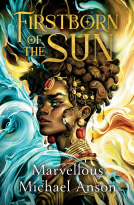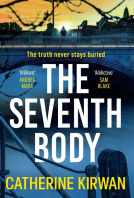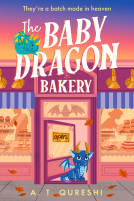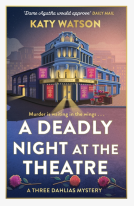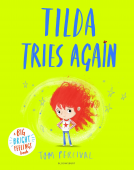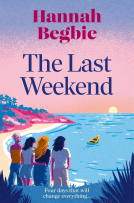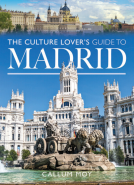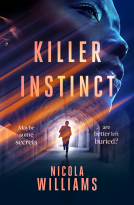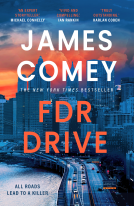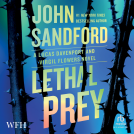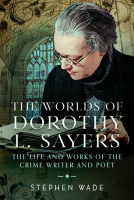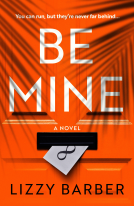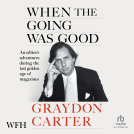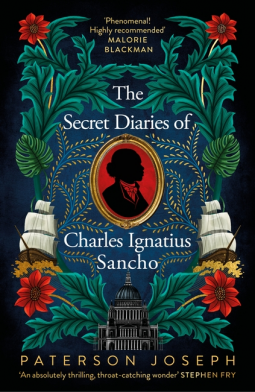
The Secret Diaries of Charles Ignatius Sancho
“An absolutely thrilling, throat-catching wonder of a historical novel” STEPHEN FRY
by Paterson Joseph
This title was previously available on NetGalley and is now archived.
Send NetGalley books directly to your Kindle or Kindle app
1
To read on a Kindle or Kindle app, please add kindle@netgalley.com as an approved email address to receive files in your Amazon account. Click here for step-by-step instructions.
2
Also find your Kindle email address within your Amazon account, and enter it here.
Pub Date 6 Oct 2022 | Archive Date 6 Oct 2022
Little, Brown Book Group UK | Dialogue Books
Talking about this book? Use #TheSecretDiariesofCharlesIgnatiusSancho #NetGalley. More hashtag tips!
Description
PICKED FOR THE TIMES BIGGEST BOOKS FOR AUTUMN 2022
'An absolutely thrilling, throat-catching wonder of a historical novel. Told with dazzling energy and brilliant panache. Hugely recommended.' STEPHEN FRY
'Phenomenal! Highly recommended' MALORIE BLACKMAN, author of Noughts and Crosses
'Not to be missed' Guardian
MEET CHARLES IGNATIUS SANCHO: HIS EXTRAORDINARY STORY, HIDDEN FOR THREE HUNDRED YEARS, IS ABOUT TO BE TOLD. DISCOVER GEORGIAN LONDON AS YOU'VE NEVER SEEN IT BEFORE . . .
I had little right to live, born on a slave ship where my parents both died. But I survived, and indeed, you might say I did more...
It's 1746 and Georgian London is not a safe place for a young Black man, especially one who has escaped slavery. After the twinkling lights in the Fleet Street coffee shops are blown out and the great houses have closed their doors for the night, Sancho is utterly alone. The man he hoped would help is dying. Sancho is desperate.
And yet this same Sancho will go on to tread the boards of London's theatres, become a highly acclaimed musician and composer, lead the fight to end slavery, meet the King and become the very first Black person to vote in Britain . . .
It's time for him to tell his story, one that begins on a tempestuous Atlantic Ocean, and ends at the very centre of London life. And through it all, he must ask: born amongst death, how much can you achieve in one short life?
From one of Britain's best-loved actors, Paterson Joseph, comes an utterly captivating historical novel, telling the true story of a Great Black Briton. Fans of Bridgerton, Hamilton, The Miniaturist and The Confessions of Frannie Langton will adore being led into the heart of Black Georgian London.
Available Editions
| EDITION | Other Format |
| ISBN | 9780349702391 |
| PRICE | £16.99 (GBP) |
| PAGES | 432 |
Featured Reviews
 Mary H, Reviewer
Mary H, Reviewer
This is a story written in beautiful language and expressing the feelings of a slave in England, feelings of love and anger especially.
The Greenwich coven, as he calls the sisters, know of his visits to the duke, and suspect that he is learning to read there. When he is imprisoned in the cellar, by those same sisters, and the slave trader comes to collect him. I will not reveal more of the plot for fear of spoiling it, but this diary is well worth a read, and is recommended.
A truly moving, mesmerising and dramatic tale.
In 1729, somewhere in the mid-Atlantic, a baby is born aboard a slave ship and against all odd, he survives. Forward to 1746 and the same boy has escaped slavery and is trying to survive in Georgian London. Constantly on the run from slave catchers and worse, he is seeking one man who might help him - the kindly Duke of Montagu who took him in and taught him to write.
What follows is possibly the most moving and achingly beautiful story I have read in a long time.
Sancho was a real person; he lived and died over two hundred years ago. Written in the form of a memoir, "The Secret Diaries of Charles Ignatius Sancho" takes the reader through a life full of danger, disappointment, hardship and hope, ambition and success. We learn how he was taken in and cared for by three sisters, rose to become a writer, composer and much more. He also became the first Black person to vote in Britain and lead the fight to end slavery.
In his author's note, Mr Joseph says " I have taken a real person and performed an act of fiction on him....seeking first to entertain, with a by-product of enlightenment about the black presence in Britain". And he does just that - taking what could have been a dry retelling of a lesser-known figure and placing him in a world of hate, corruption, injustice and poverty, which moves, educates and inspires the reader.
This is clearly a subject very close the Paterson Joseph's' heart, and indeed, he says that the book is the result of a twenty-year interest in not just the man, but his place in history. He is well-known for bringing stories to life on stage and screen, but this book proves he can do just as good a job on paper. He says "the book is an attempt to add to the growing canon of Black Historical Fiction", and it is. It's also a simple tale of the life of one man and his live and loves.
I was delighted to receive a Netgalley ARC for review, but look forward to picking up a real copy when it's published. This book will live with me for a long time to come. Thoroughly recommended.
It’s always interesting to read a book about a real person, as, despite what ever may be known about them, there is still a lot we don’t know, and that needs to be imagined by the author. I really enjoyed his take on this portion of black history in Georgian London. Charles Ignatius Sancho had an extraordinary life for anyone let alone an ex slave.. Very well written, my only niggle was that it felt a bit slow to start. However, an excellent historical read.
Thanks to NetGalley and the publisher for the opportunity to read and review this book.
 Reviewer 774133
Reviewer 774133
The Secret Diaries of Charles Ignatius Sancho by Paterson Joseph
It's 1746 and Georgian London is not a safe place for a young Black man, especially one who has escaped slavery. After the twinkling lights in the Fleet Street coffee shops are blown out and the great houses have closed their doors for the night, Sancho must dodge slave catchers and worse. The man he hoped would help - a kindly duke who taught him to write - is dying. Sancho is desperate and utterly alone.
This book is pure heaven . Read it . No , I really mean it , read it.
I could go on and tell you why you should , that the characters and the story is good or wonderful or the author writes beautifully , and I raced through it etc , or that it was the best read this year so far . Put all that aside and read it.
 Rachel F, Reviewer
Rachel F, Reviewer
The Secret Diaries of Charles Ignatius Sancho
by Paterson Joseph is a great historical fiction that is based on a true story that kept me engaged from beginning to end. I really enjoyed it!
I have actually read several nonfiction articles regarding Charles Ignatius Sancho in the past, but never anything from a fictional standpoint. I really enjoyed all of the passion, research, and talent the author exhibits with this excellent historical fiction.
With this book, we really are immersed into Georgian England (1740s), and in this case, we get to see so much more. There are so many emotions and feelings that this novel really brought to the forefront and several times, it was truly heartbreaking and difficult to read, but definitely needed. Being able to see how the character, as a Black man, trying to survive, overcome obstacles and difficulties, and how he succeeded, was such a treasure to read.
I highly recommend this one.
5/5 stars
Thank you NG and Dialogue Books/ Little, Brown Book Group UK for this wonderful arc and in return I am submitting my unbiased and voluntary review and opinion.
I am posting this review to my GR and Bookbub accounts immediately and will post it to my Amazon, Instagram, and B&N accounts upon publication on 10/6/22.
 Lynne P, Reviewer
Lynne P, Reviewer
I was so excited to read this book and I wasn’t disappointed. This book is beautifully and passionately written. The characters are so vividly written that the Georgian period is brought to life perfectly in this historical novel. I loved the style of writing as it manages to portray a time in history that was full of horrors but it does it very cleverly with poetic writing, humour and larger than life characters that bring home the lessons of history in a memorable way. I know the story is about Sancho but I fell in love with his wife Anne too who is such a strong young women.
 Helen N, Book Trade Professional
Helen N, Book Trade Professional
I loved this book. The characterisation is great and I learned a lot - I even researched Sancho after I'd read the book, so taken was I with his story. Georgian London is beautifully described and Sancho himself is such an interesting and nuanced character, it was a really good read.
I had never heard of Charles Ignatius Sancho, so this book is much needed to bring him to the attention of the reading (and general) public.
The character of Sancho created for the book is kindly, talented and flawed. He suffers many hardships, some brought on himself by pride and stubbornness, but also finds a way to triumph. The delineation of his character is believable and makes him seem real and knowable, though little is actually recorded of his life and personality.
An important book, beautifully written.
 Book B, Reviewer
Book B, Reviewer
An amazing story about a real person of history - a black man who is born on a slave ship but who then goes on to become the first black man to vote in the uk and to be the leader of the movement to abolish slavery. I realise this is a fictional account of a story but is heavily inspired by real facts. The author has a deep interest in this man's story and I feel he has done him real justice. Recommended.
What a wonderful book and a book that should be shared as there is just so much of interest and history in these pages.
The story of a little known Black writer and composer, his life in London long ago and his story. And although this is a fiction novel it s well researched and well written and you can immerse yourself into his story. I love the Georgian Era, the times were hard and dramatic and this story is moving, emotional, heart-breaking and so very interesting.
This is a must read for those who like historical fiction based on real people and has that extra benefit of being about a person not so well known. Very good, very interesting and a great read.
 Fiona A, Reviewer
Fiona A, Reviewer
This novel is a haunting exploration of hundreds of years of Black history in England. It is about slavery, its ugliness, its cruelty, its contradictions. We learn it all through Charles Ignatius “Sancho”, who is raised in England in the mid 1700s as a ‘Black pet’ to the three maiden aunts of his New Grenada plantation master.
After his escape from socially acceptable slavery – and after having been imprisoned in a cellar for his presumptuousness in learning to write and draw -- Sancho goes in search of the Duke of Montagu, his mentor during his impressionable years, who taught him to love music, poetry and literature. But the Duke is dying and Sancho must make his own way in the world. He falls under the artistic influence of such visionaries as Samuel Johnson & Gainsborough, but it is David Garrick who gives him his overriding love of theatre.
Much of the story is related through diary entries and letters. His future wife, Anne, forces him to come face to face with his ignorance of his roots as she corresponds with him from a Barbados plantation. Over many years of waiting for her return he learns of the true plight of those less fortunate than himself -- after all, he is just a lucky orphan! A grocer later in life, supplying his community, Sancho becomes glaringly aware that the ‘necessary’ commodities he provides include the contradictory, slave-driven ones – tea, sugar and tobacco!
Paterson Joseph, a well-known British actor, draws on the historical life of Charles Ignatius, to illuminate his novel of Black history, love and loyalty, romance and adventure. Sancho’s correspondence with Anne is particularly touching. Recommended.
 louisa t, Reviewer
louisa t, Reviewer
I feel like I've been on quite the adventure.
Despite knowing some of the details of Sancho's life, this book fleshed out the details, and my memory.
The highs and lows of his journey to that final magnificent page.
There's some gentle humour to be had in here, along with the horrors, and I enjoyed the mix of diary entries and letters.
Enjoyable stuff.
I read a copy provided by Netgalley and Little, Brown Book Group UK. Opinions are my own.
This is a very well-researched account of the life of Charles Ignatius It begins in the late 18th century when he is born aboard a slave ship to a mother who dies and a father who subsequently kills himself. Sancho is alone.
His life is recounted in the form of detailed accounts to his son Billy. These range back and forth and tell of cruelties but also gains and successes; of kind white people as well as those who treat him with indifference, or worse, sheer cruelty.
Along the way Sancho meets the famed of the day, Garrick, Handel, Franklin and even the King.He becomes accomplished and writes plays and music. It is an enthralling life and Paterson Joseph gets the tone just right as Sancho tells his extraordinary story in his own words.
Recommended.
 Reviewer 823951
Reviewer 823951
A captivating and haunting historical novel, telling the true story of a Great Black Briton. This historical book is not only dramatic and engrossing, it is also insightful and wise. Read it! Read it! You will never forget it!
It’s always a good thing to step out of your comfort zone and read about a subject that you have little knowledge of, whilst I had read quite a few books about the general slave trade this is an interesting take on the life of a young slave in Britain
A beautifully written and emotive book that I couldn't put down. I genuinely felt like I was in the pages of the diary witnessing first hand the life of Charles. The characters were well developed and I loved Charles but hated others such as the sisters.
If you read one book this year you need to make it this one.
 Laura F, Book Trade Professional
Laura F, Book Trade Professional
This was a really interesting read, loved the blending of fact and fiction to make for a rest good read. I found the story engaging and the setting really well drawn.
 Robert L, Reviewer
Robert L, Reviewer
This is not your typical "denunciation of slavery" historical fiction, and the reader's sympathy for the protagonist is as much rooted in the common insecurities of humanity as it is in revulsion at an institution that shamed, and, unfortunately, continues, to a lesser extent, to shame the world.
"The Secret Diaries of Charles Ignatius Sancho", both in title and form echoes the picaresque of the 17th and 18th centuries, crossed, to some degree, with the epistolary novel.
Sancho is not a typical slave. He's overfed, gouty, and a bit full of himself. His social progress, up, down, and up again, while informed by his status as a black male of uncertain position, is also used to mirror the evolution of the world in which he lives. Thus, the early part of the novel uses his rapidly changing circumstances as much to shed light on various facets of mid-to-late English society as to critique the role of those of Black African descent within it.
Sancho himself notes that his relatively pampered upbringing cuts him off from true understanding of the Black experience in that period. As a literary device, it performs the rather clever function of making him easier for a general readership to identify with, while the satirical magnification of incident and character typical of the picaresque makes one inclined to view this section of the book as an entertainment as much as a social commentary.
While there are specific racially-conditioned episodes, Sancho always manages to escape major consequences. It is only when he finds love, with a woman who has a similar education but much more direct exposure to the iniquities suffered by slaves and their descendants, that the tale of the pícaro begins to embrace the wider world in which he lives. Even then, the story is still strongly centred on its eponymous protagonist whose diminishing isolation from the lot of his fellow Black Britons mirrors the readers' increasing empathy for this unlikely hero.
It's a very effective writing gambit, and I found a growing fascination with the strangely pompous-but-insecure Sancho and his fate. The book in no way minimises the harsh society in which he finds himself - particularly with regard to child mortality, but it also uses his experiences as an individual to illuminate the slow but inexorable changes taking place therein: the American Revolution, the integration of Irish Catholics into the army (and the subsequent Gordon Riots), the legal decision that declared that no-one on British soil could be a slave.
Artfully constructed and well-informed about the conventions of literary forms not usually directed to the examination of this particular social issue, this book was a delight to read. My congratulations to the author.
 Geraldine S, Educator
Geraldine S, Educator
The themes of this book were what interested me although prior to reading I am sorry to say I had heard of neither Sancho nor the author Paterson Joseph. Reading the book has certainly encouraged me to find out more about Charles Ignatius Sancho, the first person of African descent to have a vote in Britain. I have since discovered that Joseph previously wrote a play about the character which I would love to see.
This book has been very well researched by Joseph and gives considerable insight into Sancho's life in 18th century London and also, at one remove, to the lives of both slaves and free Blacks on the Caribbean plantations at the time.
Orphaned Sancho became a composer and writer of some note and there still exist published editions of both his music and letters which largely concerned the need to abolish the slave trade.
Joseph has written this fictional biography of Sancho in the form of a diary (allegedly written for his youngest son Billy) and fictionalised letters between Sancho and his fiance Anne when she was in the Caribbean. One very positive aspect of this decision is to give a major voice to Anne, highlighting her positive influence on Sancho. In general however I found the two styles and leaps in the timeline to be somewhat confusing.
Overall I found this book an enlightening read which certainly sparked my interest and I would recommend it to readers who appreciate fictionalilsed biographies and to those interested in Black History.
My thanks to the publisher via Net Galley for a complimentary ARC of this title in return for an honest review.
I had never heard of Charles Ignatius Sancho, who was born aboard a slave ship and later became the first known person of African descent to vote in a British general election (as a result of being an independent male property owner, he had the right to vote in the 1774 and 1780 elections).
This novel, although based loosely around his life, follows the highs, the lows and horrors of his journey. Much of which is told through diary entries and letters to his wife Anne.
This is a beautiful novel and an absolute must read for those who like historical fiction based on real people and events.
Thank you to NetGalley and Little Brown Book Group UK for this excellent historical read.
This first novel by the actor Paterson Joseph is a really enjoyable and fascinating read. This is the story of Charles Ignatius Sancho an actor musician and abolitionist- in fact the first black person to vote..Born into slavery the book tells of his incredible life ; in many ways Dickensian in style and with a true sense of the period, the life of Ignatiius Sancho - his trial , tribulations, loves and adventures is written with heart for the man and presented through the protagonist telling his life story to his son. There are also parts of the book presented in letters written between him and his wife Anne Osborne- moving and detailing the traumas of their lives. The sense of oppression and one moment away from being captive back into slavery is palpable during Ignatius’ life . This is a intriguing read about one of British history’s heroes and his story needs to be widely known. Highly recommended
This was such a good book. I love historical fiction, especially when it is about eras/ situations that I previously knew nothing about and this was definitely one of those books. It was so well researched and so compelling in its narrative that not only did I love reading it but I felt that I learned too. A really enjoyable read and perfect for any fans of historical fiction. This is a first for me by the author and one I enjoyed and would read more of their work. The book cover is eye-catching and appealing and would spark my interest if in a bookshop. Thank you very much to the author, publisher and Netgalley for this ARC.
I love reading history - fact, fiction or something of both, I enjoy it all. I especially like reading about hidden history which sadly includes the many black Britons before Windrush.
So I have been so looking forward to this book since I first heard about it. Huge thanks to Paterson and his snap Twitter giveaway I was able to read an early proof.
I'm happy to report this book does not disappoint. The story of Charles Ignatuius Sancho is utterly compelling and so well drawn by the author.
His story is told through the writing of a diary of his life he wishes to leave to his son. From his arrival on England's shores through his trials and successes you are right there with him.
What an extraordinary but at the same time ordinary life. The people he meets and his luck is incredible but through the diaries we can see he shares fears most of us have - where will life take us, will we find someone to love, what legacy do we leave for our children.
Really enjoyed the insights into life in Barbados we gain through his letters between him and his wife Anne while they are in the early days of their relationship.
Definitely not all doom and gloom though as he recounts some cracking nights out in the inns and fleshpots of London and often in great company too - Dr Samuel Johnstone, William Hogarth & David Garrick are just a few famous names who make an appearance in the story. And boy does Sancho love his food - something I can definitely relate to!
A special mention to the gorgeous cover too - absolutely beautiful!
 elizabeth m, Reviewer
elizabeth m, Reviewer
The Secret Diaries Of Charles Ignatius Sancho
I have long admired Paterson Joseph as an actor, ever since I first saw him onstage playing Atahualpha, the Inca King betrayed and murdered by the invading Spaniards in The Royal Hunt of the Sun by Peter Shaffer. It was, therefore, a privilege to be able to read this, his first novel, and to discover that he is not only a superb actor, but also an excellent writer and a Social Historian, who has very effectively recaptured both d the atmosphere and society of early to mid-Georgian England, most specifically relating to the lives of the perhaps surprisingly large number of people of colour who inhabited London at the time, and the experiences of enslaved black people in Barbados, toiling in awful conditions in sugar and tobacco plantations for their often cruel white owners and overseers.
My interest was thoroughly engaged by the book, written in a style like that of Laurence Sterne’s The Life and Adventures of Tristam Shandy, Gentleman. However, the modern reader may well be relieved to discover that Joseph, although he uses a mixture of diary entries and letters to tell his tale which encompasses the life of the eponymous protagonist from birth to the age of 51 years, does not go into the precise and, some might say, overly verbose and florid detail of his celebrated predecessor. As a result, this book is extremely suitable for the modern reader, who will be engaged by the multifarious adventures of Joseph’s charming, colourful hero, Charles Aloysius Sancho as he evades captivity and slave catchers, dips his toe into bohemian, Georgian life in the company of luminaries such as Dr Johnson, Thomas Gainsborough and the renowned actor, David Garrick. He works as a valet, a messenger, the assistant to a Vicar, a composer of light music and even as an actor, treading the boards in a single performance of Shakespeare’s Othello. He mixes with the higher echelons of society, too, through his employment with the Dowager Duchess of Mansfield, widow of his first patron, who teaches him to read and encourages his thirst for education, and the Second Duke who, courtesy of his situation as close aide to King George The Third, converses with Royalty and teaches music to the youngest members of the Royal Family.
The reader will be gripped, too, by the account of life in Barbados by Sancho’s beloved, later his wife, Anne Clarke, and moved by her accounts, through letters to Sancho, of the awful situation of enslaves peoples of their colour, in particular, the moving story of nine-year-old Ata, violated by a wicked overseer and, as a result, having her lively spirit crushed forever.
For the Social Historian, it is interesting to have an insight into the lives of coloured people living in this period, as well as into the Bohemian world of artists, writers, musicians, and actors at the time. Paterson Joseph has clearly undertaken a good deal of historical research, but he has cloaked the research within a gripping narrative peopled with thoroughly engaging characters. This is an excellent debut, and, although I hope that Paterson Joseph will continue his career on the stage, I also look forward to more novels from the pen of this talented new author.
Goodreads Rating: 5 Stars.
This is the story of Charles Ignatius Sancho. These are his diaries written for his son William.
Born on a slave ship his mother died in childbirth and his father killed himself. Charles a newborn orphan was now taken to a plantation in New Grenada. Charles knew his master by only the name of Mr Henry.
When Charles was 3 years old Mr Henry took him to England and he was sent to live with Mr Henry’s 3 maiden aunts in Royal Greenwich. The Aunts name call Charles by the name of Sancho and treat him more like a pet than a human being. Alongside Tilly, the maid, the aunts are known as the coven.
A chance encounter with Duke John of Montagu leads to reading and writing lessons with the kindly Duke under the guise of helping Tilly at the market fetching food for the coven.
Georgian London is not a safe place for a young Black man, Sancho must dodge slave catchers and worse. The man he hoped would help, adujé John is dying. Sancho finds himself desperately and utterly alone.
So how does Charles come to meet the King, write and play music, become the first Black person to vote in Britain and lead the fight to end slavery?
This book is beautifully written. It’s written as a diary and also, in between, Sancho stops to write comments to his son. There is some language that is offensive however the author does not glorify it and it is used in the context of the storyline. This is a thought provoking, heart wrenching and emotional book. At times I had to remind myself that this was historical fiction and not a real diary but I am well aware that the incidents that the author has written about would have probably occurred in real life. I cannot recommend this book enough
The Secret Diaries of Charles Ignatius Sancho, by Paterson Joseph.
This is a historical work of fiction but based on the true story of Charles Ignatius Sancho. He is someone I only recently became aware of, and that was due to a Google Doodle. So needless to say when I was given the opportunity to have a ARC copy from Netgallery UK and Dialogue Books I was extremely excited to read more. I wasn't disappointed. Here is my unbiased review.
This book while fictional, draws a lot on Sanchos' (as he was pretty much known throughout his life) own true story and that allows us to be engaged in a memoir style of book, rather than a history text book. As such it works wonderfully and we become immersed in a lifestyle that is both cruel and for Sancho at least, what became a pretty luxurious upbringing in England. Where he was raised though was more for entertainment value to those around him, and it undoubtedly leaves Sancho in a sort of no-mans land of where he belongs.
There is nothing hidden from certain events - the opening chapter alone is gritty and uncompromising in the realities faced by many Black people of the time. Yet Sancho is also shielded from a lot of this reality, and he realised that it became a barrier for him.
Despite some of the bleakness we get a far more rounded view overall and the courtship with Anne who would become his wife, and his desire to leave a mark on this world brought a balance that I worried would be too condescending of the Black experiences, and yet was far from that. If anything it helped highlight the Black experiences from multiple points of view and that for me is where the book really worked.
I highly recommend this book. Both as historical fiction and as a lesson in Black UK history.
Charles Ignatius Sancho deserves to be a household name, and books such as this will hopefully bring him more to the fore.
Highly recommended reading and without a shadow of a doubt, 5/5 stars 🌟
A dazzling book that should grace any bookshelf.
 Reviewer 997206
Reviewer 997206
This is a fictional story about a real person, by being fictionalised the story is entertaining as well as informative. The atmospheric and evocative descriptions really bring the character of Charles Ignatius Sancho to life. I feel that the book opens up a new perspective of life in the 18th century, whilst at the same time the use of history also spotlights issues in the modern world. This is the type of personal story that can broaden your understanding of people in general. It is also very much a story of London.
I read this as a free digital review copy via NetGalley.
I don't tend to go for novels by actors very often, not even when I like the actor, but between Paterson Joseph's recent co-written radio play about Septimius Severus, and his Radio 3 Essay about Sancho, this felt like it deserved my attention. Certainly the setting helped (Georgian London, one of the times London was at its Londoniest), not to mention the lead himself, an abolitionist and composer believed to have been the first black man to vote in Britain. Someone, too, about whom Joseph has previously performed a one-man show, compounding the tendency when reading a book by an author whose voice one knows to hear it in that voice, see him in the lead role. Something which at times here cuts against the text; Joseph normally presents such an assured, suave presence (hell, even in Peep Show he got to play a character who mostly gave the impression of having his shit together, at least for a while, and there were precious few of those) that it can be difficult to hold on to some of the flaws he admits on his narrator's behalf, such as the portliness and the lisp. Not that these are Sancho's only flaws, mind: Joseph makes clear in his opening note that he's not interested in creating a hagiography here, nor its opposite, either as regards the lead or his age: this is designedly, and much to its benefit, neither "a tale filled with whips and curses and rapes and murders" nor "pageant and a multicultural cast of larger-than-life characters, sashaying unmolested through London". "I did not write this book to stir debate on the historical accuracy surrounding the presence of Black People in the United Kingdom in ages past. The numbers are disputed, naturally, the presence is not. This, only, is my goal: to depict that presence in the form in which I met Oliver Twist, David Copperfield and Jane Eyre." Although I would suggest that Joseph Andrews and Tom Jones might be even better comparisons, as befits the age. Certainly this Sancho recounts episodes which as far as I know are Joseph's additions to the life, but which put me in mind of Fielding, where our hero falls into bad ways and endures periods of penury and danger before getting back into the good graces of his benefactors and reaching a point of stability from which he can properly establish himself. Although Fielding, of course, was still more of a believer in hierarchy than would feel comfortable in any modern writer, even if he could nibble at the edges of it with foundlings and suchlike devices. Here, on the other hand, there's a keen awareness of class, which is frequently at least as responsible as race for making Sancho feel like an outsider, as when the father of his first love, a girl from a poor white family, objects to the intended union not on the grounds of the colour of his skin, but the unworldliness he has learned as first the jealously guarded pet of three spinsters, and then through the attentions of a philanthropic nobleman. Not that this is the novel's only theme either, of course; it's just as interested in giving us portraits of the great, good and otherwise of Georgian London, through encounters with the likes of Hogarth, Dr Johnson, George II himself. If I have a quibble it's contained within that 'otherwise'; the obvious villain of the piece is the slave-catcher Jonathan Sill, but for all Sancho's understandable fear of him, Sill never quite attains the malign, grotesque stature I'd expect of the antagonist in an 18th century novel. Which, of course, might be a deliberate choice on Joseph's part, not wanting to let Sill loom large enough to pull the book over into those whips and curses and murders, and if so, fair enough. Because what's very clear from this is that the man can write, whether that be steering through the narrow passageway between pastiche and anachronism*, or little timeless observations like the way that people seem to lose half their life force when their lifelong love loses all of theirs. This is perhaps sacrificed a little as the book moves towards its endgame and speeds up, skipping through whole years with only infrequent letters, which must do double duty in giving us both a love story, and a monster whose crimes are far more graphically realised than Sill's. Certainly I suspect that another hundred pages, a little more room to maintain the bagginess and texture of influences (and cameos) like Fielding and Sterne, could have served it well. But for a debut novel it's still bloody good.
*I did notice one, late in the day, when Kingsway is present rather too soon - but as a passing mention rather than anything integral, it's easy enough to avert one's eyes.
(Netgalley ARC)
 Valerie C, Reviewer
Valerie C, Reviewer
Firstly I'd like to say I really enjoyed reading this book. Set in the middle of the 18th century, the story of Charles Ignatious Sancho, is a black man born on a slave ship. His mother dying in childbirth is very fortunate to be taken in by Three sisters as a pet and servant, although kept in his place. A kindly Duke comes across him and educates him in secret. When his secret comes out he is shut in the cellar and forgotten about. Tilly the housemaid let's him out, packs him a bag and leaves him to the streets of London.
His slow rise above the deprecation follows.
Many of the characters mentioned you will recognise although this is a work of fiction.
It ends with slavery on the cusp of being made illegal.
 Kate S, Reviewer
Kate S, Reviewer
I thoroughly enjoyed this novel and I think Paterson Joseph has quite the career ahead of him in historical fiction!
I love the Georgian period as London was just beginning to modernise and become the city we now know and love. I’ve read plenty of historical fiction and non fiction works on the abolition of slavery and slavery itself in the USA. Sadly few authors gave written about the early black members of British society and Charles Sancho is definitely a man to write about. Acting, voting, conversing with the King himself our hero is bright, effervescent and utterly charming and I found myself rooting for him from the first chapter.
I read the book quickly over a few days and will happily read anything else that Mr Joseph decides to write in the future.
 Liz C, Educator
Liz C, Educator
Really loved this book and the characters. Wasn’t sure when I requested it but love Paterson Joseph so thought I’d give it a go. Absolutely fascinating and have already recommended it to friends and family!
Initial thought (full review to come)
A heartbreaking, beautiful and poignant retelling of the life of Charles Ignatius Sancho through the diaries anf and letters between a father and son.
Paterson Joseph proves himself to be the most wonderful of social historian's and indeed storytellers as he recounts the life of Charles Ignatius (or Sancho as he was commonly known) to his son Billy. The story begins with the birth of young Sancho and from this moment, we realise that this story is not a sanitised fairytale but indeed an account of real man and his experience the daily pains and humilations so often visited on Black people at the hands of white people. A
 Jessica G, Reviewer
Jessica G, Reviewer
It's always a bit disconcerting reading a work of fiction by someone known in another capacity whether personally or through a high profile job as here. As a reader will the awareness of the author change the reading at all? In this case I think that the author's other job, as an actor, adds a veracity to the book through his own knowledge of the history and language of the time that maybe a non-actor wouldn't have been able to add. And there was no need to worry about voice: Sancho's voice is so clear and consistent that this does not feel like fiction at all, or in this case a fictionalised biography but a genuine 18th century diary.
Charles Ignatius Sancho was a real man, a Black man living in 18th century London. Born a slave, he is given to three sisters to raise, until he is grown and they tire of him. Luckily he has influential patrons, unluckily he still has to make a living and avoid the slave catchers who aren't too bothered about the status of any person they can make money from. But thanks to his intelligence and tenacity, Sancho not just survives but flourishes, a business man, father, husband, friend and abolitionist. Paterson Joseph doesn't lionise his hero, Sancho is flawed, sometimes pompous, but very real.
In his introduction Joseph warns us: Don't read this book if you want slavery porn, nor are the struggles of people of Colour in the 18th century ignored in a Bridgertonesque masquerade. Like his hero, Joseph has conjured up a London where racism, prejudice and cruelty are rife, but so is kindness, love, friendship. There is a real air of menace to some parts of the book, scenes as upsetting as a scene set on a plantation would have been, but also many scenes of humour, happiness, love, hope.
So authentically written it feels like it could be shelved alongside any 18th century work this is a rich, fascinating debut. Highly recommended.
So informative and great to learn about ethnic minorities in the 18th century. This book provides real-life chapters of Charles Ignatius Sancho, a free black man in England. He encounters slave catchers, London life, good people and eventually his future wife, Anne Osborne. Such an important book for anyone interested in history, society and culture.
This is the fictional story of the real Charles Ignatius Sancho and it had me griped from the start.
It starts in 1729 when Charles is born on a slave ship and he loses both his parents. Forward to 1746 and he is constantly on the run from slave catchers and trying to find the person that showed him a kindness once. What follows is an incredibly moving story both beautiful and heartbreaking.
The way the author manages to bring the Georgian era alive is transfixing, their narrative is very descriptive and immersive.
 Helena T, Reviewer
Helena T, Reviewer
As an historical fiction lover, I really enjoyed reading The Secret Diaries of Charles Ignatius Sancho. Based on a true story, I really felt immersed in 18th century England. Paterson Joseph has a way of writing that transports you back in time.
Charles Igantius Sancho was a black composer and writer and also it is believed, he was also the first black man to vote in Britain. Admittedly I thought the book might focus more on this aspect of Sancho's life as what a defining moment in history this was, however the book is a fictionalised history of his earlier life, and I wasn't disappointed.
Sancho's acquaintances with the nobility were extremely fortunate and the fact that he was able to learn to read and write stood him in good stead during his later life. This allowed him to eventually find work and freedom. His life in London was undoubtedly tough as an educated black man, but Sancho navigates life to the best of his ability and achieves a lot.
I found this quite a moving read and would definitely read more by Paterson Joseph in the future.
1746 - We meet one Charles Ignatius Sancho; this is the fictionalised account of his life. A real young black man living in Georgian Britain, born on a slave ship in the middle of the Atlantic into a life of slavery. Through his diaries he tells us his tale, how he learned to write and educate himself and escaped to live on the streets, dodging slave catchers and living in fear. His life is a rollercoaster of emotion and he rises to meet the King, writes and plays music, is friends with David Garrick, has his portrait painted by Gainsborough, became the first Black person to vote in Britain and lead the fight to end slavery.
This is an incredible story, you wouldn’t believe one person could pack so much into their life! A story of desperation and loneliness, a story of fear and also a story of love and hope. I found this book enlightening, captivating and enthralling. My interest was really piqued and I went down a few rabbit holes reading about these real people and their lives, this stuff really did happen to Sancho!
I especially liked the segments of letter writing between Sancho and Anne and the contrasts between life in London and on the plantation. A lot made me feel quite saddened and just disgusted with how Black people were not treated as people. It was also a learning experience for me, I found out a lot I did not know. This is the great thing about reading both fiction and non fiction, you can broaden your horizons, educate yourself and sometimes walk in the footsteps of real people.
Let Sancho’s voice speak to you, read this one!
Paterson Joseph's debut novel is outstanding, and dramatises the life of a true character, Charles Ignatius Sancho.
Sancho was born on a slave ship, and finds himself in London living in the house of three spinsters, essentially their pet. Having engaged with education despite their wishes, he finds himself homeless in London, and this is the essence of his story - through all the incidents and escapades he gets into, and his battle to escape the slave catchers.
Sancho ends up a person of great renown, known at the court of the King, and with privilege and rights beyond most of those in his position.
This is a tremendous read, what touched me most of all is the relationship between Sancho and his future wife, Anne, and their long distance courtship.
Through letters the reader is sucked into the 18th Century in this fascinating account of a man fully immersed and revered by many in Georgian London, but hunted, hounded and excluded by others. The highs and lows of Charles's life are reflected in the mixed emotions experienced on reading this often funny, sometimes.sad, often hard to digest very British history.
I enjoyed "The Secret Diaries of Charles Ignatius Sancho" for many of the same reasons I enjoy most books, but the highlight of this book (for me) was the "feels". Some parts make for emotional reading, both positive and negative, thanks to the superb writing of Paterson Joseph. Everything (plot, writing, setting, characters) combines beautifully and brings you within an inch of actually living the story. More please!
My thanks to the author, publisher, and NetGalley. This review was written voluntarily and is entirely my own, unbiased, opinion.
 Tony C, Reviewer
Tony C, Reviewer
Really enjoyed this intriguing story of Charles Ignatius Sancho who could not have had a more difficult start to life on a slave ship. Loved the way the author used the unusual diary format to narrate the story. Plenty of twists and turns both happy and sad in the life of Sancho to keep you turning the pages to the very end.
 Mel P, Reviewer
Mel P, Reviewer
It's always an intrigue, reading a first book written by a celebrity and a little worry that it won't be any good... no problem here! "The Secret Diaries of Charles Ignatius Sancho" by Paterson Joseph is so eloquently written. The book was well structured and I particularly enjoyed Sancho's early life. A refreshing historical read.
 Reviewer 495291
Reviewer 495291
The weaving of the fictitious story around the real life of Charles Ignatius Sancho is expertly done. The book pulled me in with its vivid descriptions, evocative of 18th century life to the point where I could almost smell it. The horror of slavery and the divisions within society at the time are made clear. This has created a curiosity to find out more about Sancho who I had never heard of before reading this book.
Thank you to the publisher and NetGalley for a free ARC in exchange for my honest review.
 Reviewer 675379
Reviewer 675379
I had not heard of Charles Ignatius Sancho before reading this - I was surprised to discover his extraordinary story in the pages of this book.
Sancho looks back on his life in the letters and diaries addressed to his young son (and let's not forget the letters from his wife narrating the awful situation in Barbados and Antigua). Fascinating and educational.
The secret diaries of Charles Ignatius Sancho by Patterson Joseph is a fictional story based on a real person. Sancho was a black Composer and a writer and was believed to be the first black person to vote in Britain. This is an account of his life. Call it a memoir is you will. I have not heard of Sancho and had to goggle his name to find out more.
He was born on black slave ship in 1729 but then lost his parents. In 1749 He was brought to London where he was then sold to three sisters who treated him like a pet. He managed to escape them but first became destitute until he met the Duke of Montagu who taught him to read and write.
Parts of the story tells us of his courtship and marriage to Anne and the horrors that go on with the black slavers. And Sancho using his higher status joins the British Abolitionist movement to fight against the slave trade.
Thank you, Little Brown, and NetGalley for a copy of this book. This an entertaining read of not only the life of Charles Ignatius Sancho but also an insight into the Black slavery in Britain. I know it existed but for me I did not know much about it until I read this. After reading I had to find out more about him. 4 stars from me.
 Reviewer 796948
Reviewer 796948
I thoroughly enjoyed this, written mainly as a diary to his son with letters to and from his beloved Anne, we learn about this extraordinary life in Georgian London. Although ficionalised, Sancho was a real person. Born on a slave ship in 1729 in the Atlanic then orphaned, Sancho goes on to have a very unusual upbringing and fascinating series of jobs, combined with meeting some hugely influential people such as Samuel Johnson, Gainsborough and David Garrick. His story manages to be both heartbreaking and heartwarming, he is taken in by the Duke of Montagu who is kind, teaches him to write but there is always an element of danger such as the slave catchers. With huge obstacles to climb, he goes on to become writer, musician and composer amongst other things. He was the the first black person to vote in Britain and became a leader in the fight to end slavery. There is clearly a lot of historical research in here and it is told with a storytellers skill, I certainly learned much about this period of British history as well as more about what life was like on the plantations. Dark at times, brutal, honest and hopeful, it's a cracking read and I highly recommend.
With thanks to the publishers and NetGalley for an ARC, all views are my own.
 Jean B, Reviewer
Jean B, Reviewer
A fascinating glimpse into Georgian London from the viewpoint of a young black child escaping slavery and how his life evolves in society. I did struggle slightly with the writing style at times, but overall a really well researched and interesting read.
Thank you to netgalley and little, brown books for an advance copy of this book.
I really wanted to read this…
Georgian London is such a rich setting for a novel, particularly when it is as well described as it is here. This book is a fictional memoir of a real person, who was very much part of the literary and musical society at this time. He was a protégé of John Montagu, and knew Samuel Johnson and Laurence Sterne, but he started life on a slave ship.
The fictional Charles Ignatius Sancho is relating his story to his youngest son, with the help of his own diaries and letters. He comes across as a larger than life character, very chatty and very likeable, and genuinely funny in places.
I enjoyed the contrast between the ‘now’ where he explains the background, and the ‘then’, the actual diary entries and letters he references. I absolutely loved the epistolary section between him and his future wife, Anne Osborne.
Of course the whole book is about slavery, the repercussions of slavery, and the fragile existence of the free Black community in London, not a particularly light subject, but Sancho’s optimism and belief that it must be possible to make a better world shine through.
A very readable book about a really interesting period of history.
 Anita W, Reviewer
Anita W, Reviewer
I believe this is a debut and it’s absolutely astonishing. The writing is accomplished, highly engaging and the historical detail is incredible. It’s written in the form of a journal and is based on facts about a black man trying to make his way in Georgian London. The author’s research appears to be meticulous. In addition to creating a vibrant locale, icy in detail, this is very much a human story. It’s one which resonates through the centuries and the way in which he struggles is often heartbreaking. It’s complex and multilayered and historical fiction truly at its best. It’s in my top ten favourite reads this year nd one which will stay with me because Sancho is brought so vividly to life. I hope there’s more from Paterson Joseph.
My thanks to the publisher for a review copy via Netgalley.
Charles Ignatius Sancho tells the story of his life by way of some fair entries and also spoken tales. I found it sad, curious at times and also quite tearful. The author writes a great tale .and touches upon historical information that makes this book more believeable in terms of what Sancho has gone through, together with other characters.
There's not much more to say about the content as it will give too much away, but it's a good story which I'm sure you'll enjoy!.
Many thanks to Netgalley for the free ARC book for an honest review.
#Netgalley, #littlebrown, #pattersondjoseph.
 Mary U, Reviewer
Mary U, Reviewer
What an intriguing book! It tells the story of Charles Ignatius Sancho in Georgian London, taking into account his diary entries.. I found it brilliantly observed and written as it covered slavery and the horrors of life in these times. Charles was a strong person and I am really pleased to have been given the opportunity to read about his life.
 Reviewer 850130
Reviewer 850130
The best stories always come from real life and this is inspired and based on the life of Charles Sancho. It is a heartening but hopefully book and speaks of the resilience of the human spirit.
Based on the true story of the first black man to vote in Britain and beautifully and honestly showing the true nature of life for a black man in Georgian London. Encompassing 20 years of research by the author this is a moving and at times disturbing tale told in wonderful prose in the form of a memoir.
Briefly, born on a slave ship Sancho escaped the life of a slave on a plantation when he was brought to England and became a servant of three spinster sisters in London. Their treatment of him eventually lead to him running away and only by good fortune, and the intercession of the Duke of Montagu, did he escape the clutches of the slave catchers. His life after that went from extreme poverty to a good happy married life but with much to tell betwixt and between those times.
This is a fascinating tale, made all the more so by knowing that it is based on fact albeit with poetic licence where needed. An emotional tale with the full gamut of emotions running through it - love and hate, joy and sadnesses, success and failure, despondency and hope, most of all hope. Sancho was a positive man and that’s what shone through everything else. This is definitely a book destined for awards. A wonderful read.
I know I should buy a book written by an actor because I loved how they portrayed a character on a TV show but when I saw Patterson Joseph who managed to make me root for slimy tech mogul Connor Mason in Timeless- I just couldn’t resist. I’m glad I did because The Secret Diaries of Charles Ignatius Sancho was a joy to read from start to finish.
The story is told from the point of Sancho through his diaries chronicled his eventful life. The author’s writing helps bring to life this perhaps charismatic man to life, his joy for life , his strength of will in overcoming obstacles and his optimism.
Like most British people( I know Im making an assumption), I assumed multicultural England started in the last century ,so this book was revelation of a more multicultural London. The book doesn’t gloss over the cruelty and hardship faced by non-white people which can be hard to read but the author describes how many parts of English society was open and welcoming as well.
There is no plot per se ( in my view) but the book is beautiful journey through the eventful life of a remarkable man.
Content warning
Descriptions of slavery,prejudice,racial slurs,sexual violence
Readers who liked this book also liked:
Marvellous Michael Anson
General Fiction (Adult), Multicultural Interest, Sci Fi & Fantasy
Telegraph Media Group (TMG)
Business, Leadership, Finance, Health, Mind & Body, Professional & Technical

